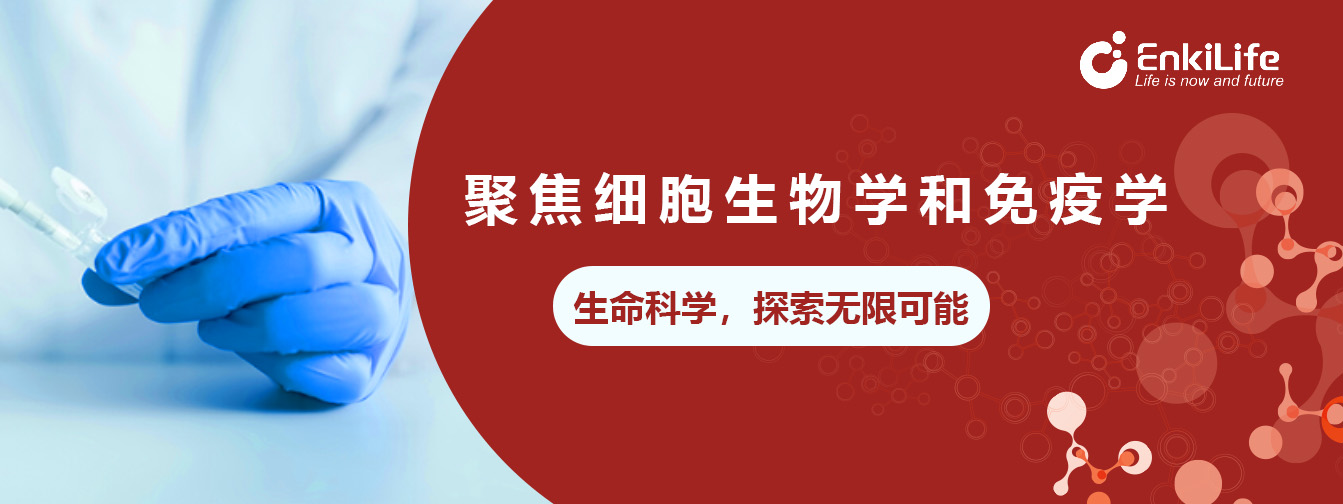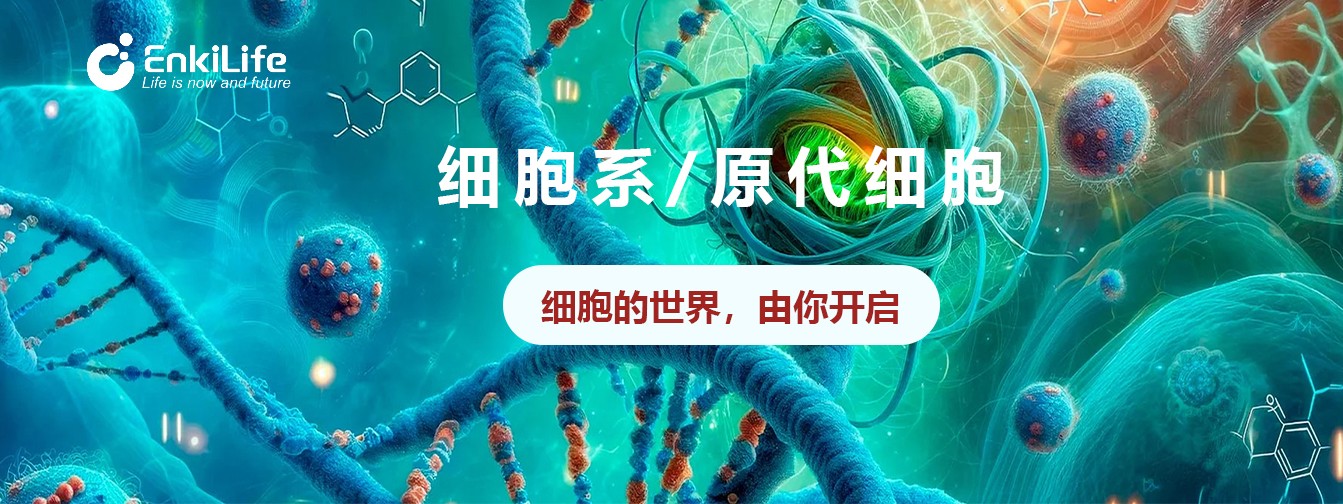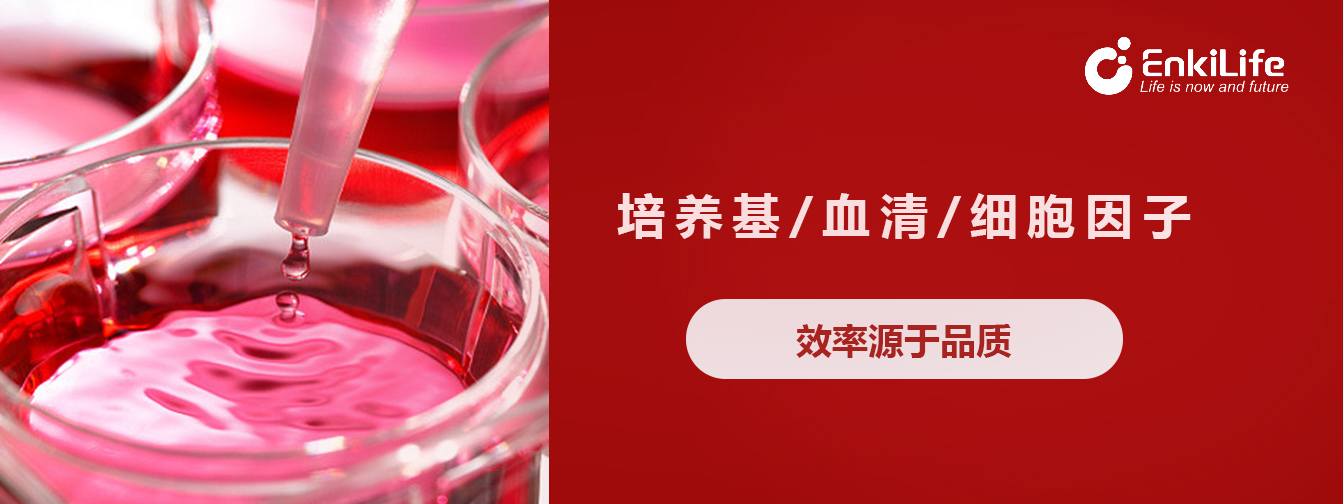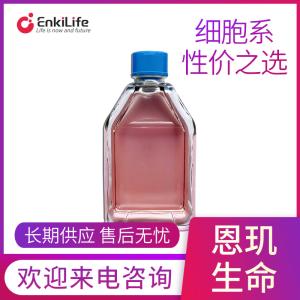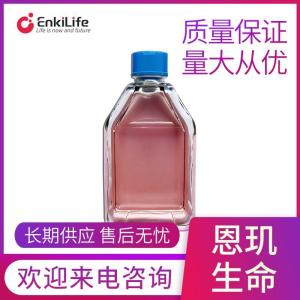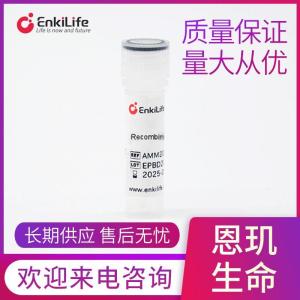
|
- 品牌:EnkiLife
- 产地:中国
- 型号:支
- 货号:PCH90043
- 价格: ¥300/10μg
- 发布日期: 2024-11-30
- 更新日期: 2025-05-22
| 产地 | 中国 |
| 保存条件 | |
| 品牌 | EnkiLife |
| 货号 | PCH90043 |
| 用途 | 细胞培养用细胞因子 |
| 组织来源 | |
| 细胞形态 | |
| 是否是肿瘤细胞 | |
| 保质期 | |
| 器官来源 | |
| 免疫类型 | |
| 品系 | |
| 生长状态 | |
| 物种来源 | |
| 包装规格 | 支 |
| 是否进口 | 否 |
分子别名
umor Necrosis Factor; Cachectin; TNF-Alpha; Tumor Necrosis Factor Ligand Superfamily Member 2; TNF-a; TNF; TNFA; TNFSF2
Bioactivity

The ED50 for this effect is 5-60 pg/mL.
背景介绍
Tumor Necrosis Factor-α (TNF-α) is secreted by macrophages, monocytes, neutrophils, T-cells, and NK-cells following stimulation by bacterial LPS. Cells expressing CD4 secrete TNF-α while cells that express CD8 secrete little or no TNF-α. Synthesis of TNF-α can be induced by many different stimuli including interferons, IL2, and GM-CSF. The clinical use of the potent anti-tumor activity of TNF-α has been limited by the proinflammatory side effects such as fever, dose-limiting hypotension, hepatotoxicity, intravascular thrombosis, and hemorrhage. Designing clinically applicable TNF-α mutants with low systemic toxicity has been of intense pharmacological interest. Human TNF-α that binds to murine TNF-R55 but not murine TNF-R7, exhibits retained anti-tumor activity and reduced systemic toxicity in mice compared with murine TNF-α, which binds to both murine TNF receptors. Based on these results, many TNF-α mutants that selectively bind to TNF-R55 have been designed. These mutants displayed cytotoxic activities on tumor cell lines in vitro and have exhibited lower systemic toxicity in vivo. Recombinant Human TNF-α High Active Mutant differs from the wild-type by amino acid subsitution of amino acids 1-7 with Arg8, Lys9, Arg10 and Phe157. This mutant form has been shown to have increased activity with less inflammatory side effects in vivo.


